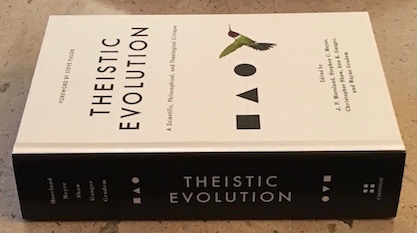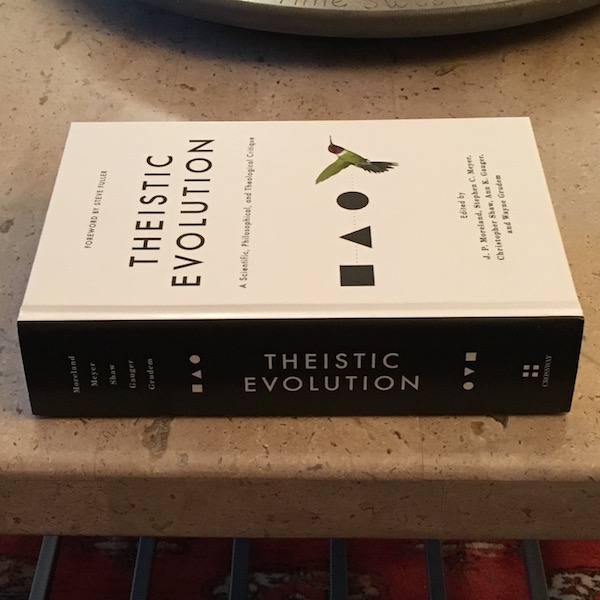 Evolution
Evolution
 Faith & Science
Faith & Science
 Intelligent Design
Intelligent Design
But Why a Thousand-Page Critique of Theistic Evolution?


Doug Axe is reading the new (actually still forthcoming) Theistic Evolution: A Scientific, Philosophical, and Theological Critique. He heartily approves of the Foreword by Steve Fuller.
New volume critiquing theistic evolution starts with a strikingly good Forward by @ProfSteveFuller:
“Public opinion surveys consistently show that people are pro-science as a mode of inquiry but anti-science as a mode of authority.”
Go people!!https://t.co/nSiDoOHiFx— Douglas Axe (@DougAxe) November 8, 2017
More from Dr. Fuller’s Foreword:
This is a book about theists who contest the place of modern science in Christianity. The charge laid at the doorstep of theistic evolutionists is that the doorstep is exactly where they leave their religious commitment when they enter the house of science. They do this, even though the weight of the evidence from across the natural sciences does not oblige such a conclusion.
That is certainly true. But why a thousand-page book making the charge, the work of no fewer than five editors including Discovery Institute’s Stephen Meyer, Ann Gauger, and J.P. Moreland? Fuller goes on:
[F]rom cosmology to biology, it is becoming increasingly clear that science’s failure to explain matters at the most fundamental level is at least in part due to an institutional prohibition on intelligent design as one of the explanatory options. In these pages, “methodological naturalism” is the name by which this prohibition goes, but it could be equally called “methodological atheism.”
That’s strong stuff, and a pleasure to read.
Science in a range of areas is caught in a dark alley it can escape by the obvious means — an openness to entertaining design explanations — but this is broadly rejected before the evidence can even be considered.
Why atheists would deny the possibility of design is obvious. Why some Christians or other religious believers, scientists or laymen, would do so is another question. Whether in science, the media, or other discussions, atheist denialism is more readily dismissed or at least contextualized because of its transparent motivations.
When theistic evolutionists attack design, the motivation is anything but clear, and this is a constant source of confusion for the public and scientists alike. While their numbers are small, TE spokesmen arguably sow more confusion than the atheists, because readers or listeners assume that if the evidence were there for ID, surely these fine believers, with a characteristically pious way of expressing themselves, would embrace it.
That, I think, helps to explain the importance and urgency of addressing them, and at considerable length. I warmly recommend that you check it out now, not least since it’s available at a pre-publication discount at Amazon.
Photo credit: Paul Nelson.
